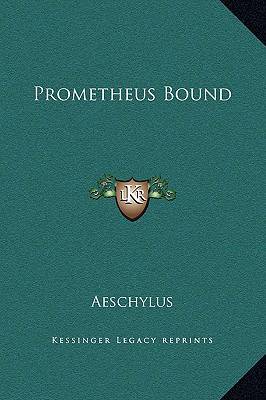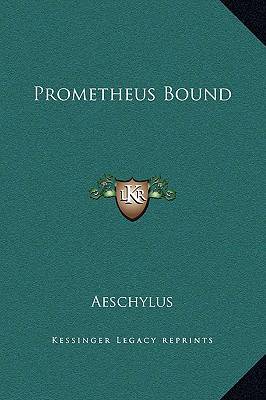
- Afhalen na 1 uur in een winkel met voorraad
- Gratis thuislevering in België vanaf € 30
- Ruim aanbod met 7 miljoen producten
- Afhalen na 1 uur in een winkel met voorraad
- Gratis thuislevering in België vanaf € 30
- Ruim aanbod met 7 miljoen producten
Zoeken
Omschrijving
Prometheus Bound is a play by the ancient Greek playwright Aeschylus. It tells the story of Prometheus, a Titan who defies Zeus, the king of the gods, by giving fire to humanity. As punishment for this act, Zeus has Prometheus chained to a rock in the Caucasus Mountains, where he is tormented by a vulture that eats his liver every day. The play begins with Prometheus being visited by the Oceanids, the daughters of the sea god Oceanus, who sympathize with his suffering. Prometheus then has a series of conversations with various characters, including Io, a woman who has been transformed into a cow by Zeus, and Hermes, the messenger of the gods. Throughout the play, Prometheus remains defiant and proud, refusing to apologize to Zeus or beg for mercy. He also predicts Zeus's downfall and the rise of a new ruler who will be more just and compassionate. Prometheus Bound is a powerful exploration of the themes of rebellion, punishment, and the struggle for freedom. It is also notable for its vivid imagery, poetic language, and complex characters.PROMETHEUS Think not that I for pride and stubbornness Am silent: rather is my heart the prey Of gnawing thoughts, both for the past, and now Seeing myself by vengeance buffeted. For to these younger Gods their precedence Who severally determined if not I?This scarce antiquarian book is a facsimile reprint of the old original and may contain some imperfections such as library marks and notations. Because we believe this work is culturally important, we have made it available as part of our commitment for protecting, preserving, and promoting the world's literature in affordable, high quality, modern editions, that are true to their original work.
Specificaties
Betrokkenen
- Auteur(s):
- Uitgeverij:
Inhoud
- Aantal bladzijden:
- 52
- Taal:
- Engels
Eigenschappen
- Productcode (EAN):
- 9781169207189
- Verschijningsdatum:
- 10/09/2010
- Uitvoering:
- Hardcover
- Formaat:
- Genaaid
- Afmetingen:
- 178 mm x 254 mm
- Gewicht:
- 312 g

Alleen bij Standaard Boekhandel
+ 92 punten op je klantenkaart van Standaard Boekhandel
Beoordelingen
We publiceren alleen reviews die voldoen aan de voorwaarden voor reviews. Bekijk onze voorwaarden voor reviews.












